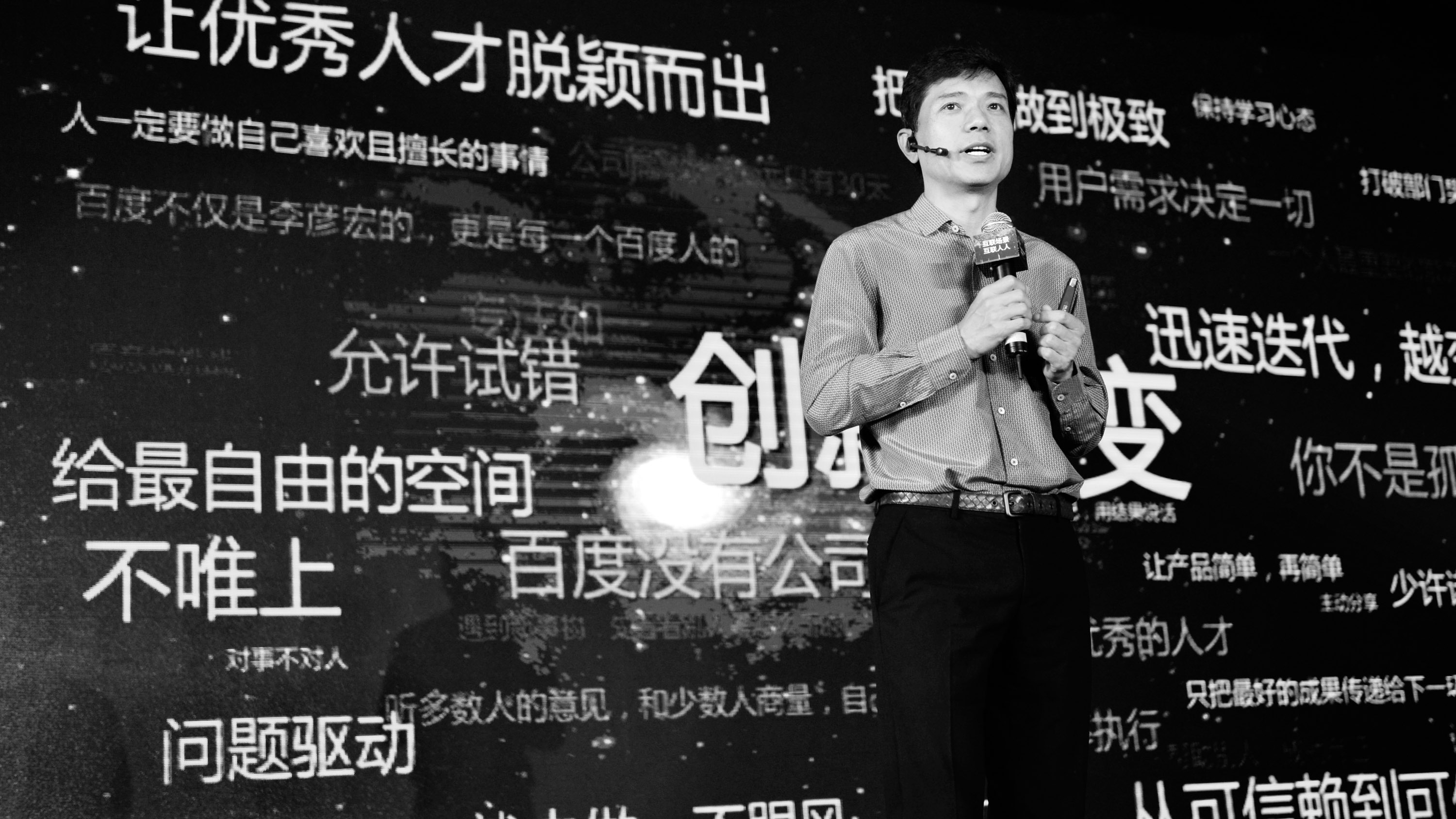Chinese ChatGPT alternatives just got approved for the general public
Baidu launched Ernie Bot back in March, but access to it and its competitors was strictly limited. Now AI-powered chatbots will be widely available to Chinese users for the first time.

Baidu, one of China’s leading artificial-intelligence companies, has announced it would open up access to its ChatGPT-like large language model, Ernie Bot, to the general public.
It’s been a long time coming. Launched in mid-March, Ernie Bot was the first Chinese ChatGPT rival. Since then, many Chinese tech companies, including Alibaba and ByteDance, have followed suit and released their own models. Yet all of them forced users to sit on waitlists or go through approval systems, making the products mostly inaccessible for ordinary users—a possible result, people suspected, of limits put in place by the Chinese state.
On August 30, Baidu posted on social media that it will also release a batch of new AI applications within the Ernie Bot as the company rolls out open registration the following day.
Quoting an anonymous source, Bloomberg reported that regulatory approval will be given to “a handful of firms including fledgling players and major technology names.” Sina News, a Chinese publication, reported that eight Chinese generative AI chatbots have been included in the first batch of services approved for public release.
ByteDance, which released the chatbot Doubao on August 18, and the Institute of Automation at the Chinese Academy of Sciences, which released Zidong Taichu 2.0 in June, are reportedly also included in the first batch. Other models from Alibaba, iFLYTEK, JD, and 360 are not.
When Ernie Bot was released on March 16, the response was a mix of excitement and disappointment. Many people deemed its performance mediocre relative to the previously released ChatGPT.
But most people simply weren’t able to see it for themselves. The launch event didn’t feature a live demonstration, and later, to actually try out the bot, Chinese users need to have a Baidu account and apply for a use license that could take as long as three months to come through. Because of this, some people who got access early were selling secondhand Baidu accounts on e-commerce sites, charging anywhere from a few bucks to over $100.
More than a dozen Chinese generative AI chatbots were released after Ernie Bot. They are all pretty similar to their Western counterparts in that they are capable of conversing in text—answering questions, solving math problems (somewhat), writing programming code, and composing poems. Some of them also allow input and output in other forms, like audio, images, data visualization, or radio signals.
Like Ernie Bot, these services came with restrictions for user access, making it difficult for the general public in China to experience them. Some were allowed only for business uses.
One of the main reasons Chinese tech companies limited access to the general public was concern that the models could be used to generate politically sensitive information. While the Chinese government has shown it’s extremely capable of censoring social media content, new technologies like generative AI could push the censorship machine to unknown and unpredictable levels. Most current chatbots like those from Baidu and ByteDance have built-in moderation mechanisms that would refuse to answer sensitive questions about Taiwan or Chinese president Xi Jinping, but a general release to China’s 1.4 billion people would almost certainly allow users to find more clever ways to circumvent censors.
When China released its first regulation specifically targeting generative AI services in July, it included a line requesting that companies obtain “relevant administrative licenses,” though at the time the law didn’t specify what licenses it meant.
As Bloomberg first reported, the approval Baidu obtained this week was issued by the Chinese Cyberspace Administration, the country’s main internet regulator, and it will allow companies to roll out their ChatGPT-style services to the whole country. But the agency has not officially announced which companies obtained the public access license or which ones have applied for it.
Even with the new access, it’s unclear how many people will use the products. The initial lack of access to Chinese chatbot alternatives decreased public interest in them. While ChatGPT has not been officially released in China, many Chinese people are able to access the OpenAI chatbot by using VPN software.
“Making Ernie Bot available to hundreds of millions of Internet users, Baidu will collect massive valuable real-world human feedback. This will not only help improve Baidu’s foundation model but also iterate Ernie Bot on a much faster pace, ultimately leading to a superior user experience,” said Robin Li, Baidu’s CEO, according to a press release from the company.
Baidu declined to give further comment. ByteDance did not immediately respond to a request for comment from MIT Technology Review.
Deep Dive
Artificial intelligence
Large language models can do jaw-dropping things. But nobody knows exactly why.
And that's a problem. Figuring it out is one of the biggest scientific puzzles of our time and a crucial step towards controlling more powerful future models.
What’s next for generative video
OpenAI's Sora has raised the bar for AI moviemaking. Here are four things to bear in mind as we wrap our heads around what's coming.
Is robotics about to have its own ChatGPT moment?
Researchers are using generative AI and other techniques to teach robots new skills—including tasks they could perform in homes.
Stay connected
Get the latest updates from
MIT Technology Review
Discover special offers, top stories, upcoming events, and more.